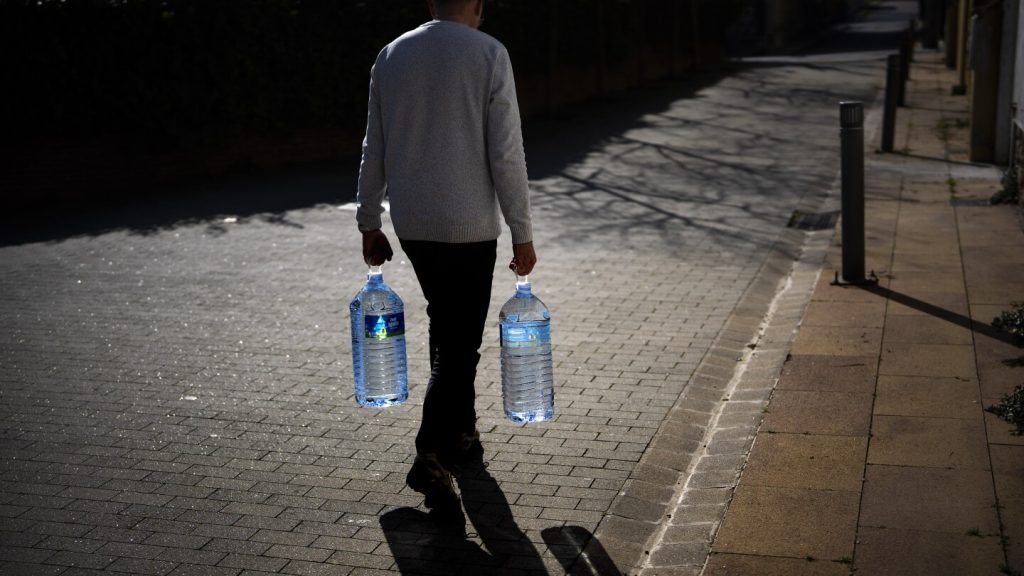The northeastern region of Catalonia in Spain is facing a severe drought, leading the government to consider imposing water restrictions on tourists in the driest areas. The restrictions would limit tourists to 100 liters (26 gallons) of water per day per person in hotels if domestic water consumption by residents exceeds established limits. Barcelona, the regional capital and Spain’s second-largest city, currently uses 160 liters of water per resident per day, well below the limit of 200 liters. The move comes as pressure mounts from water conservation groups to limit the water usage by tourists during the ongoing drought.
Data from Barcelona’s hotel guild reveals that the average tourist in 2022 consumed around 163 liters of water per day, with luxury hotels using over 240 liters per day. The proposed restrictions would not apply to water used for filling swimming pools. Additionally, the Catalan government announced the relaxation of restrictions on refilling swimming pools with fresh water. Privately-owned pools can now be refilled in severe drought conditions if declared a “climate refuge” for residents seeking relief from the heat. The regional government has also allowed private desalination installations to be used, a demand made by hotel owners.
Catalonia has been heavily impacted by the drought, attributed to climate change, which has also affected parts of southern Spain. While a wet spring this year has slightly improved the situation, Catalonia continues to face historic water scarcity. Reservoirs in the Barcelona area, which were at 15% capacity, are now at 18%. Despite this slight improvement, the regional government has maintained restrictions under a water emergency declared in February. These restrictions include reducing water use by 80% for crop irrigation, 50% for herd animals, and 25% for industrial purposes. The region is striving to combat the effects of the ongoing drought and ensure sustainable water management.
Tourism plays a significant role in Spain’s economy, representing nearly 12% of the country’s GDP. The debate over water usage by tourists underscores the need for responsible water conservation practices, especially in regions facing drought conditions. The Catalan government’s consideration of water restrictions for tourists reflects a broader global concern for sustainable water management amid climate change challenges. As the region navigates the delicate balance between supporting its tourist industry and preserving its natural resources, stakeholders are urged to prioritize water conservation efforts to mitigate the impacts of drought and secure a sustainable future for Catalonia’s water supply.
As Catalonia grapples with the effects of a prolonged drought and implements measures to address water scarcity, the region’s ability to balance the demands of tourism with environmental sustainability will be crucial. With ongoing climate challenges exacerbating water shortages, responsible water management practices are essential to ensuring the long-term resilience of Catalonia’s water resources. By exploring innovative solutions, engaging stakeholders, and promoting water conservation awareness, Catalonia can navigate the complexities of drought conditions and pave the way towards a more sustainable and water-secure future for its residents and visitors alike.


